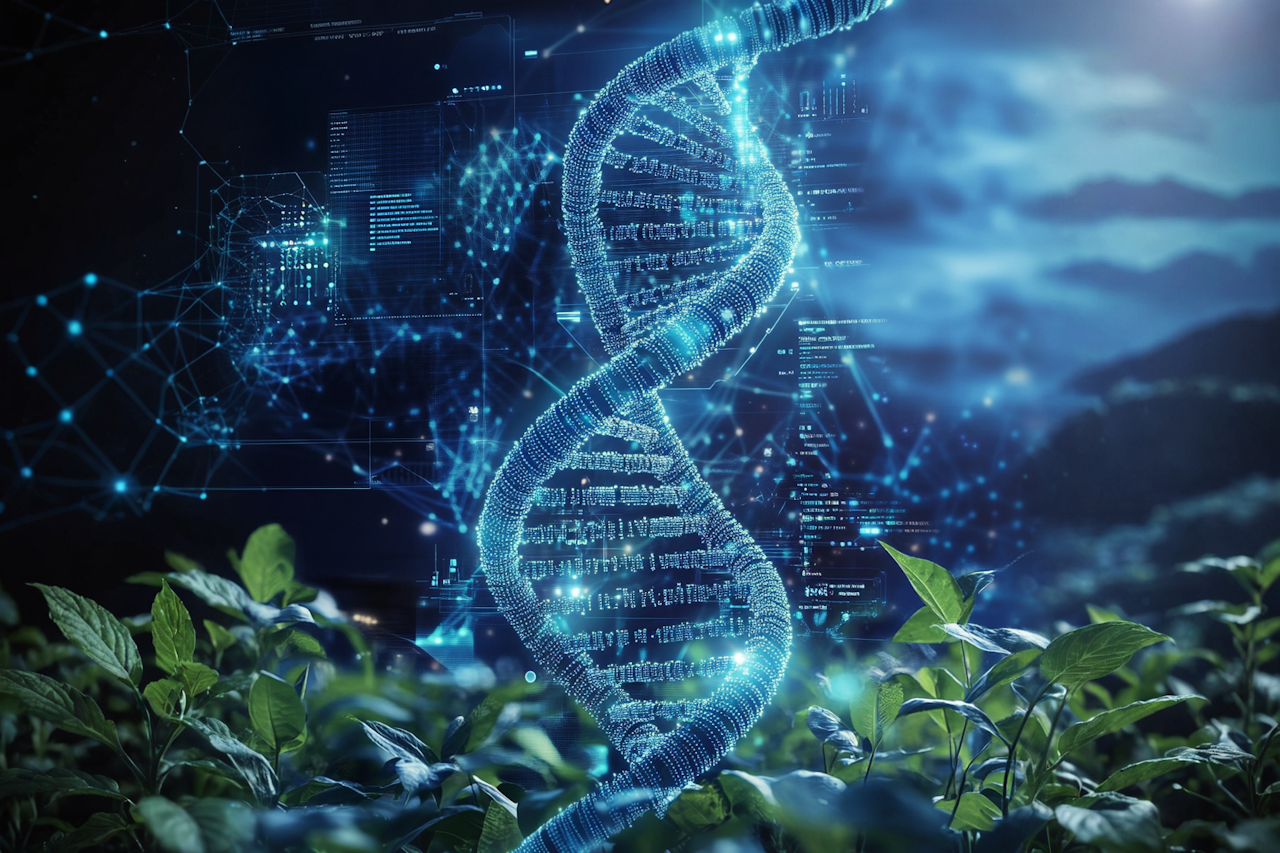Imagine a world where diseases are not just treated but eradicated, where crops are engineered to withstand the harshest climates, and where environmental challenges are met with genetic solutions. This isn’t a scene from a science fiction novel but a glimpse into a future potentially realised by the convergence of Artificial Intelligence (AI) and CRISPR technology. As we edge closer to 2025, this synergy is poised to revolutionise multiple sectors, from medicine to agriculture, while also raising profound ethical questions.
The Synergy of AI and CRISPR
AI and CRISPR, each a marvel of modern science, bring unique strengths to the table. AI’s ability to process and analyse vast datasets with unmatched speed and precision complements CRISPR’s capacity for editing genes with extraordinary accuracy. Together, they promise a new era of transformative genome editing. AI can enhance CRISPR’s precision, significantly reducing off-target effects, which are unintended alterations in the genome that may lead to unforeseen complications. This synergy is expected to refine the accuracy of gene editing, thereby increasing its efficacy in various applications (source).
Potential Transformations by 2025
The implications of AI-enhanced CRISPR technology are vast and varied. In medicine, it heralds the dawn of personalised treatment regimens tailored to an individual’s genetic makeup, potentially curing genetic disorders and offering breakthroughs in cancer therapy (source). In agriculture, the combination could lead to crops with enhanced resilience and productivity, crucial for feeding a growing global population and combating food insecurity (source). Furthermore, the environmental sector stands to benefit from organisms genetically adapted to withstand and mitigate the effects of climate change, offering a novel approach to environmental conservation.
Challenges and Ethical Considerations
Despite the promising potential, the integration of AI and CRISPR is fraught with challenges. Gene editing carries risks such as unintended genetic consequences that could ripple through ecosystems, potentially causing ecological imbalances (source). Ethical concerns also loom large, particularly regarding genetic privacy and consent. The possibility of exacerbating genetic inequality is a real concern, as such technologies may not be equally accessible to all populations (source). Robust regulatory frameworks and governance are essential to manage these risks responsibly.
Looking Forward: Preparing for a New Era
Addressing the challenges associated with CRISPR technology requires a multi-faceted approach. Strategies include enhancing the specificity and safety of gene editing techniques and fostering global cooperation to develop ethical guidelines and regulatory policies (source). Public discourse is crucial to understanding societal impacts and fostering informed decision-making. Encouraging dialogue among scientists, policymakers, and the public can help ensure that these powerful tools are used for the betterment of society.
As we gaze towards 2025, the marriage of AI and CRISPR offers a tantalising promise of transformation but also demands a careful balancing act. By embracing collaboration and regulation, we can harness these technologies to address some of the world’s most pressing challenges while safeguarding against potential pitfalls. The future of gene editing is bright, but it is a future we must approach with caution and foresight.
In Other News…
Holiday Shoppers Are Looking Out for AI-powered Scams and Deepfakes as More Admit Falling Victim
A recent report by McAfee highlights a growing concern among holiday shoppers about AI-driven scams and deepfakes, with a significant number of people admitting they have fallen victim to such deceptions. This trend underscores the need for heightened vigilance as technology evolves to create increasingly convincing fraud tactics.
Read More
Australian Supermarket to Trial Smart AI-powered Trolleys So Shoppers Can Skip the Checkout
Coles, a major Australian supermarket chain, is piloting AI-enabled smart trolleys that aim to streamline shopping by allowing customers to bypass traditional checkouts. This innovative initiative seeks to combine convenience and cutting-edge technology to enhance the shopping experience.
Read More
Is There Something Special About the Human Voice?
An intriguing BBC article explores the uniqueness of the human voice and its vulnerabilities in the age of AI deepfakes, raising questions about the implications for communication and identity. The piece delves into how the authenticity of our voices might remain significant despite technological advancements.
Read More


